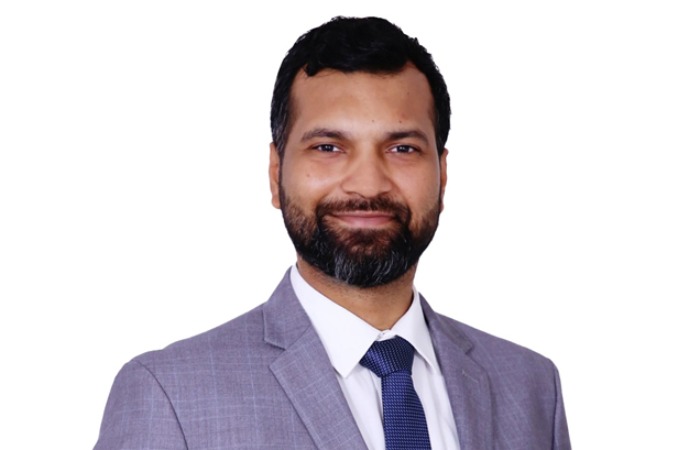
Our BES portfolio supports India’s net-zero and 2030 goals
Sachin Jain, Head – Strategy, Transformation, Battery and Energy Storage (BES) Business, TKIL Industries, shares insights on technology, innovation, and the future of energy storage in India.
Could you give us an overview of TKIL Industries and its BES business?
TKIL Industries, formerly known as thyssenkrupp Industries India, is one of India’s leading industrial equipment manufacturers and EPC solution providers. With a legacy of nearly 80 years, the company has served core industries such as energy, mining, cement, etc. Its two world-class facilities in Pimpri and Hyderabad are equipped with advanced fabrication, machining, and testing capabilities, certified under ISO 9001, ISO 14001, ISO 45001, and ASME standards.
Building on this strong foundation, TKIL has strategically diversified into the BES segment. Our portfolio includes the manufacture and assembly of battery systems for rail locomotives and stationary energy storage systems. Alongside serving India’s growing demand, TKIL is also targeting export markets by leveraging India’s manufacturing strengths and our high-quality standards.
India’s railways and metro systems are expanding rapidly. What factors are driving this growth, and how is it influencing the need for energy storage?
Rail and metro expansion is driven by economic efficiency, sustainability goals, and strong government policy support. The electrification of India’s broad-gauge rail network is nearly complete, and metro networks are operational in over 23 cities.
This transformation demands advanced energy storage solutions to enable regenerative braking, ensure reliable power backup for critical operations, and support head-on generation for locomotives. Auxiliary battery systems are becoming indispensable for efficiency, safety, and sustainability in modern transport.
What are the key technological and operational challenges in deploying rail battery systems, and how is TKIL addressing them?
Rail battery systems face challenges such as meeting stringent fire safety and vibration standards, ensuring long cycle life in India’s hot and dusty conditions, and controlling lifecycle costs. Seamless integration with train system controllers and nationwide after-sales service further add to the complexity.
To address this, TKIL has partnered with Germany’s HOPPECKE, a global leader in rail battery systems. Together, we deliver proven, safe, and high-performance solutions tailored for Indian conditions.
How is TKIL aligning its BES business with India’s sustainability and net-zero targets?
Sustainability is central to our vision. Our BES portfolio directly supports India’s net-zero goals and Indian Railways’ 2030 carbon-neutral target. Our rail solutions reduce dependence on diesel and significantly cut emissions, while localised manufacturing strengthens domestic supply chains and reduces embedded carbon. Beyond rail, our large-scale storage systems support renewable energy integration for industries and utilities, enabling greener operations.
Could you elaborate on the significance of TKIL’s partnership with HOPPECKE?
The TKIL–HOPPECKE partnership brings Germany’s advanced battery technology to India with higher localisation through domestic manufacturing and assembly. This ensures access to globally proven, safe, and efficient energy storage systems, backed by local service and support. For TKIL, it accelerates product development, builds customer confidence, and strengthens our position as a credible partner. The fact that the alliance has already secured its first project highlights its market relevance.
With India aiming to double its electric locomotive capacity by 2030, how do you see energy storage evolving in transport and infrastructure?
Energy storage will evolve from being a support function to becoming a strategic enabler of India’s electrified transport. Beyond backup, batteries will support regenerative braking, enable catenary-free operations in metros and yards, and power hybrid stations integrated with renewables.
By 2030, as locomotive capacity doubles and metro systems expand, energy storage will be critical to ensuring operational reliability, grid stability, and emission reduction.
How critical is establishing a local service and maintenance network for battery adoption in rail and metro projects?
Service and reliability are vital in rail and metro operations, where safety and uptime are non-negotiable. Battery systems require regular monitoring, preventive maintenance, and fast response in case of breakdowns.
Through our alliance, we are building a nationwide service network that leverages TKIL’s field presence. This ensures quicker diagnostics, faster spare part availability, and reduced downtime, helping lower lifecycle costs and building operator confidence.
What are TKIL’s growth priorities for the BES business, both in India and globally?
Our priorities include scaling up manufacturing capacity to meet rising domestic and export demand, driving innovation through alternate chemistries, and increasing localisation to strengthen supply chains. Through these steps, TKIL aims to be a preferred partner in transport and infrastructure projects while aligning with India’s clean energy and sustainable mobility goals.


 +91-22-24193000
+91-22-24193000 Subscriber@ASAPPinfoGlobal.com
Subscriber@ASAPPinfoGlobal.com